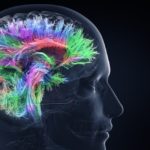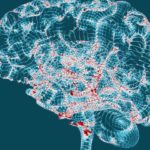Misinformation, a subject with an array of partisan consensus and objections, is certainly a controversial topic, especially among the American general public, as indicated in a recent study.
According to the study, appearing online in the peer-reviewed journal Human Communication Research, its findings supplied a panel of researchers at Ohio State University with the conclusion that numerical facts could be influenced and/or misremembered as a result of bias.
“Numerical facts play a prominent role in public discourse, but individuals often provide incorrect estimates of policy-relevant numerical quantities (e.g., the number of immigrants in the country),” the findings read.
To reach its results, researchers initiated two separate studies, comprehensively examining schemas, its involvement in the initiation of numerical misinformation, and how it could spread through person-to-person communication.
“In our first study, we combined eye movement monitoring and behavioral methods to examine how schemas distorted what people remembered about policy-relevant numerical information,” researchers explained.
The first study involved 110 participants, all of which received short written descriptions of several issues associated with numerical information.
“In a second study, we examined the consequences of these memory distortions via the social transmission of numerical information, using the serial reproduction paradigm,” the findings added.
Based on the findings, misremembrance was the driver of numerical misinformation caused by bias. “They weren’t guessing — they got the numbers right. But their biases were leading them to misremember the direction they were going,” researchers noted.
In a different report, released in Cyberpsychology, Behavior, and Social Networking earlier this year, Lee EJ and Jang JW, uncovered the following notion on misinformation: “Participants who initially favored the source were less likely to attribute the sharing of fake news to the source’s dispositions, rather than situational factors, thereby maintaining their positive attitudes toward the source.”
In contrast to previous findings, however, the new results highlight how person-to-person transmission of misinformation can exacerbate memorical errors.
“We found that individuals misremembered numerical information in a manner consistent with their schemas, and that person-to-person transmission can exacerbate these memory errors,” the findings detailed.
“Our studies highlight the mechanisms supporting the generation and spread of numerical misinformation and demonstrate the utility of a multi-method approach in the study of misinformation.”


